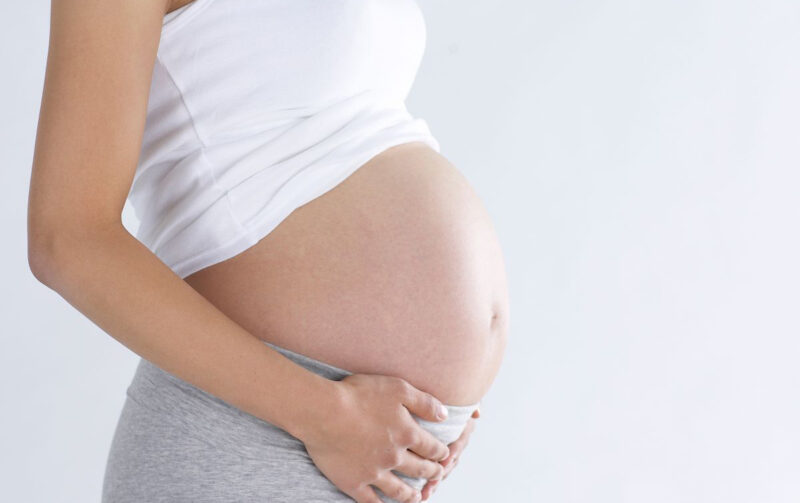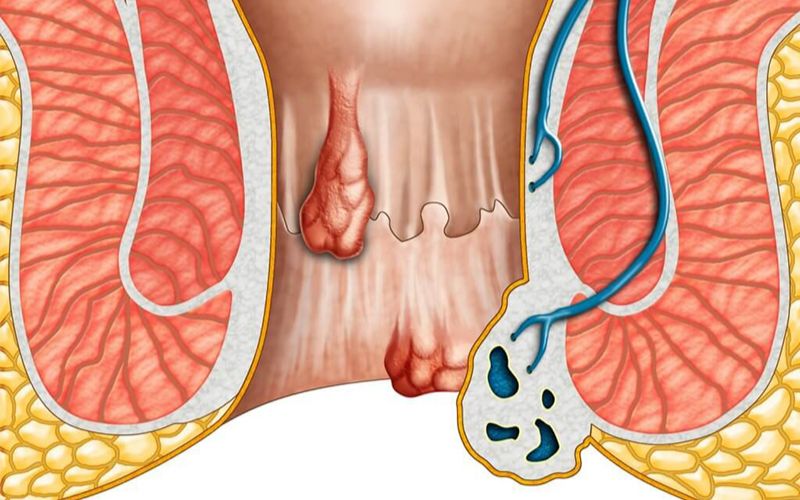Hemorrhoids during pregnancy are a common issue that many expectant mothers face, particularly in the later stages of pregnancy. This condition occurs when the veins in the anal region become swollen, leading to discomfort, pain, and sometimes bleeding during bowel movements. But why are pregnant women more susceptible to hemorrhoids? This article will help you understand the key causes of this condition.
1. Overview of Hemorrhoids: Causes and Symptoms
Hemorrhoids are swollen or enlarged veins in the anal and rectal area due to prolonged pressure. There are two main types of hemorrhoids:
– Internal hemorrhoids: Located inside the rectum and may not be visible or painful but can cause bleeding.
– External hemorrhoids: Found around the anal opening and can cause significant discomfort, itching, and swelling.
1.1 Causes of Hemorrhoids
Several factors contribute to the development of hemorrhoids, including:
– Chronic constipation or diarrhea: Straining during bowel movements puts excessive pressure on the anal veins.
– Sedentary lifestyle: Prolonged sitting or standing impairs blood circulation, leading to vein congestion in the anal region.
– Low-fiber diet: Insufficient fiber intake can cause constipation, a leading trigger for hemorrhoids.
– Pregnancy and childbirth: Increased pressure from the growing uterus and pushing during labor heightens the risk.
– Obesity: Excess body weight places added pressure on the pelvic veins.
1.2 Symptoms of Hemorrhoids
Common signs of hemorrhoids include:
– Rectal bleeding: Blood may appear on toilet paper or in the stool.
– Hemorrhoidal prolapse: Hemorrhoidal tissue may protrude outside the anal canal, initially retracting on its own but later requiring manual repositioning.
– Pain and discomfort: Especially noticeable during bowel movements or prolonged sitting.
– Itching and irritation: Caused by mucus discharge from hemorrhoids.
If you experience these symptoms, seeking medical attention is crucial to prevent complications.
2. Why Are Pregnant Women More Prone to Hemorrhoids?
2.1. Increased Pressure on Anal Veins
As the fetus grows, the expanding uterus exerts direct pressure on the pelvic veins and anal region. This pressure impedes blood flow from the lower body back to the heart, causing the veins in the anal area to swell and form hemorrhoids.
Particularly in late pregnancy: The larger the baby, the greater the pressure on the rectal veins, significantly increasing the risk of hemorrhoids.

As the baby grows, the expanding uterus puts direct pressure on the pelvic and anal veins.
2.2. Constipation – A Primary Culprit
Constipation is prevalent among pregnant women and is a leading cause of hemorrhoids. Contributing factors include:
– Hormonal changes: Elevated progesterone levels slow intestinal movement, leading to harder stools and difficulty passing them.
– Poor dietary habits: Some expectant mothers consume insufficient fiber from vegetables and fruits, exacerbating constipation.
– Inadequate water intake: Dehydration results in dry, hard stools, making bowel movements more strenuous.
Chronic constipation forces pregnant women to strain excessively, placing additional stress on the anal veins and promoting hemorrhoid formation.
2.3. Increased Blood Volume
During pregnancy, the body produces more blood to supply nutrients to the baby. This increased blood volume places additional pressure on the veins, particularly in the pelvic and anal regions, contributing to hemorrhoidal swelling.
2.4. Pregnancy-Related Weight Gain
Weight gain is a natural part of pregnancy, but excess body weight can contribute to hemorrhoids. Added weight not only strains the musculoskeletal system but also exerts pressure on the anal veins, particularly in women who are less physically active.

Hemorrhoids are a common issue for pregnant women.
2.5. Prolonged Sitting or Standing
Spending long periods sitting or standing can lead to poor blood circulation, increasing pressure in the anal veins and causing hemorrhoids. Pregnant women who remain in one position for too long are more likely to experience vein congestion in the anal area.
2.6. Hormonal Changes
The pregnancy hormone progesterone not only slows bowel movements but also relaxes the walls of blood vessels, making veins more susceptible to swelling. This hormonal effect further predisposes pregnant women to hemorrhoids.
2.7. The Impact of Labor and Delivery
During labor, women experience intense straining, which dramatically increases pressure on the rectal veins. This can worsen existing hemorrhoids or even trigger their development immediately after childbirth.
3. How to Reduce the Risk of Hemorrhoids During Pregnancy
To prevent and alleviate hemorrhoidal symptoms, expectant mothers can adopt the following measures:
– Increase fiber intake: Consuming more leafy greens, fresh fruits, and whole grains can promote digestive health.
– Stay hydrated: Drinking at least 2 to 2.5 liters of water per day helps soften stools and prevent constipation.
– Engage in light physical activity: Activities like walking and prenatal yoga improve blood circulation and reduce pressure on the anal veins.
– Avoid prolonged sitting or standing: If your work requires long periods of sitting, take frequent breaks to move around.
– Use proper toilet posture: A footstool can help achieve a more natural squatting position, reducing strain on the rectal veins.

Increasing fiber intake helps reduce the risk of hemorrhoids during pregnancy.
When to Consult a Doctor
Pregnant women should seek medical advice if they experience:
– Severe pain and persistent discomfort in the anal area.
– Protruding hemorrhoids that do not retract or become ulcerated and bleed continuously.
– Chronic constipation affecting daily activities.
Conclusion
Hemorrhoids during pregnancy are a common yet manageable condition. With the right dietary adjustments, hydration, and physical activity, expectant mothers can reduce their risk and alleviate symptoms. If you are experiencing pregnancy-related hemorrhoids, consult a healthcare professional for appropriate guidance and treatment.








